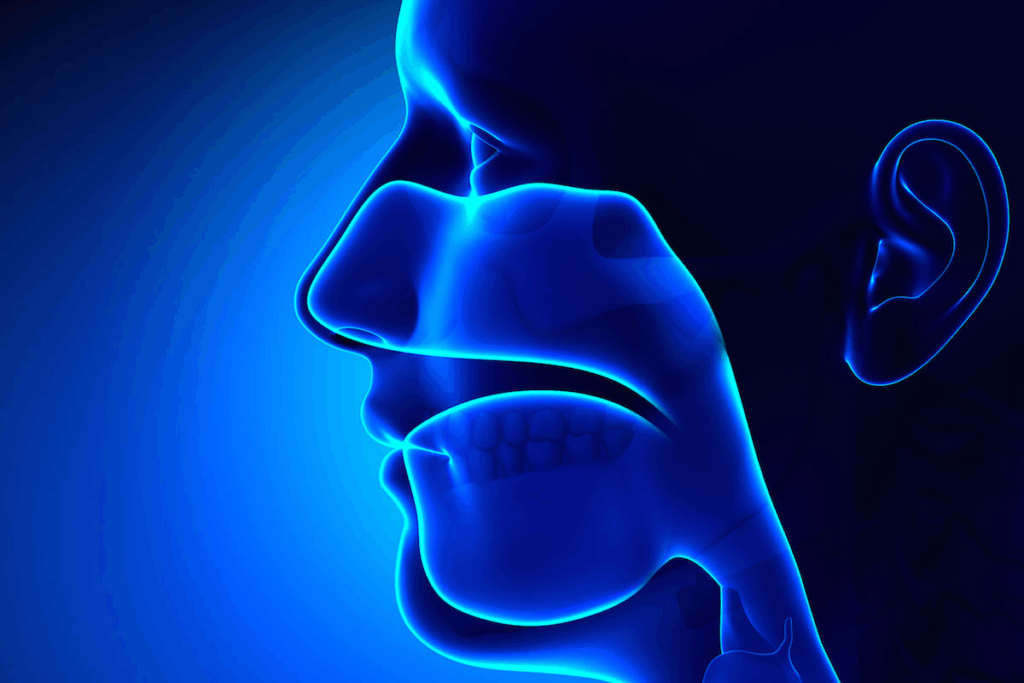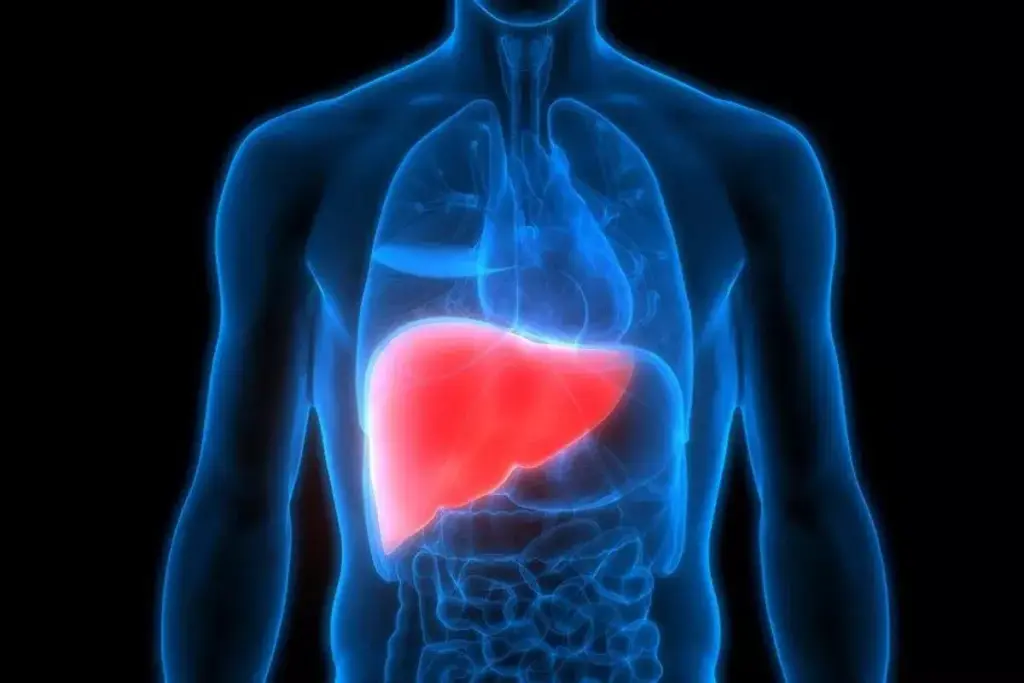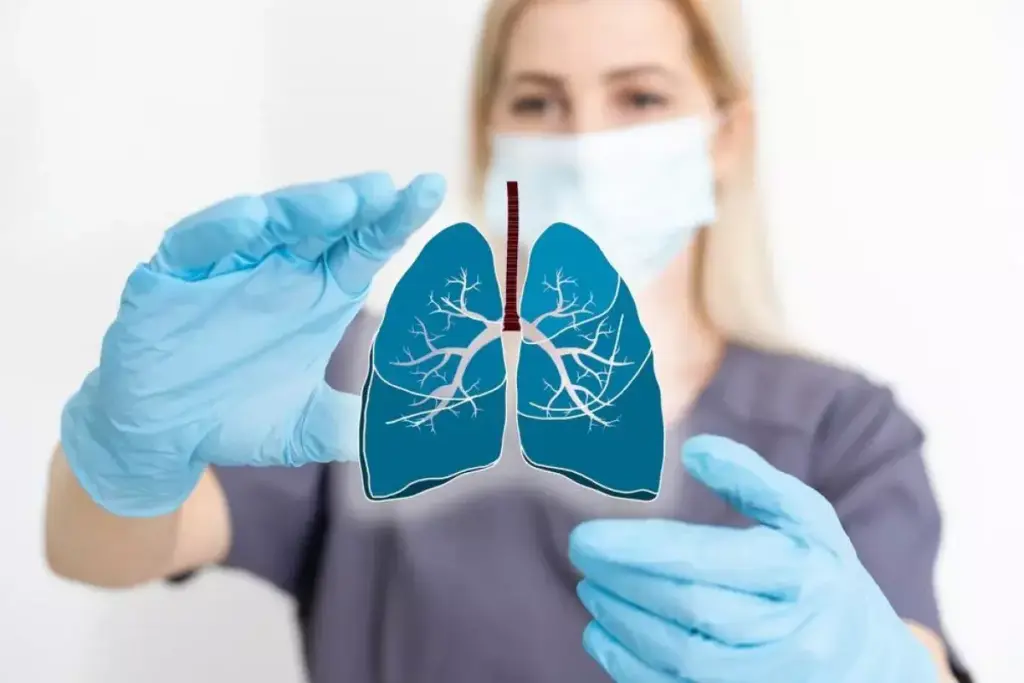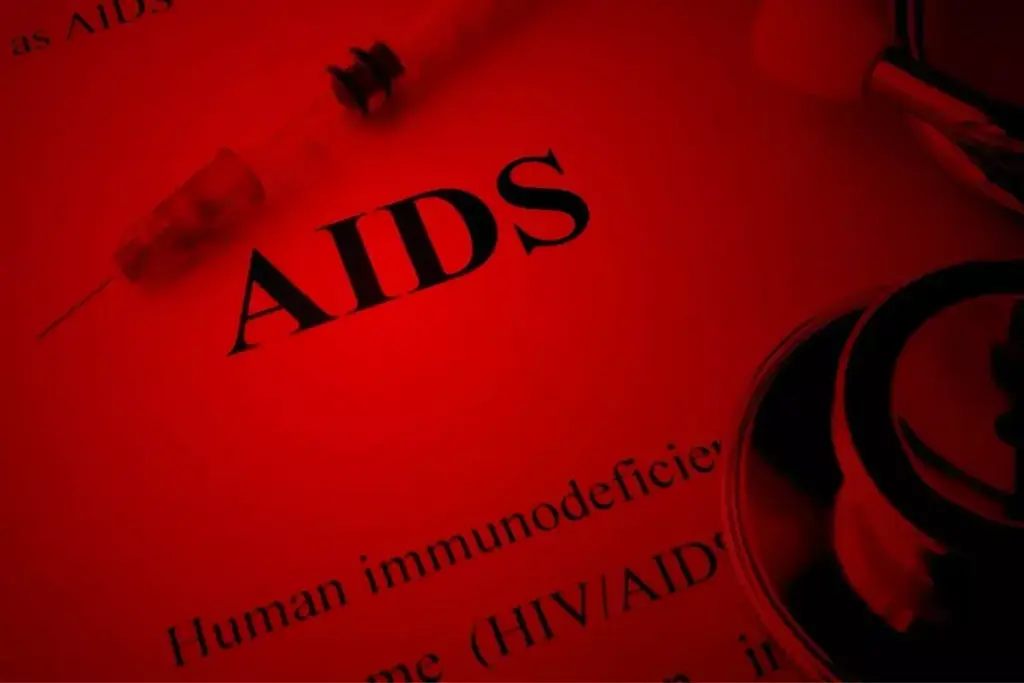
Sinus infections are common worldwide, causing discomfort and disrupting daily life. The question of whether these infections are contagious is complex. While the sinus infection itself is not directly contagious, the underlying viruses or bacteria that cause it can be highly contagious. The American College of Allergy, Asthma, and Immunology reports that sinus infections (sinusitis) affect about 31 million Americans each year. Can you catch a sinus infection? Learn that the underlying cause (usually a cold) is contagious, but the secondary bacterial infection is not.
It’s important to understand this difference to take the right precautions and make informed health decisions. We will look into how sinus infections spread and what it means for you and those around you.
Key Takeaways
- Sinus infections themselves are not contagious, but their underlying causes can be.
- Viruses that trigger most sinus infections are highly contagious.
- Bacterial sinus infections can also spread through close contact.
- Precautions such as hygiene practices can help prevent the spread.
- Understanding the cause of a sinus infection is key to determining its contagiousness.
Understanding Sinus Infections: The Basics

It’s important to know the basics of sinus infections to manage them well. Sinus infections, or sinusitis, affect millions globally. They cause discomfort and can disrupt daily life.
What Is Sinusitis?
Sinusitis is when the sinus cavities get inflamed. This leads to symptoms like nasal congestion, facial pain, and headaches. The cause can be a virus, bacteria, or fungus, and knowing the cause helps in choosing the right treatment.
Sinusitis can be acute or chronic. Acute sinusitis is usually viral and lasts less than four weeks. Chronic sinusitis lasts more than 12 weeks and can be due to allergies, anatomical issues, or other health problems.
Common Symptoms of Sinus Infections
The symptoms of sinus infections vary based on the cause and individual health. Common symptoms include:
- Nasal congestion and discharge
- Facial pain and pressure
- Headaches
- Cough and sore throat
- Fatigue
It’s essential to recognize these symptoms to seek appropriate medical care.
Prevalence and Impact in the United States
Sinusitis is a big health issue in the U.S., affecting millions yearly. The Centers for Disease Control and Prevention (CDC) says it’s one of the most common chronic conditions in the country.
Prevalence | Impact |
Approximately 1 in 7 adults have sinusitis | Significant impact on quality of life, including work and social activities |
More common in women than men | Results in substantial healthcare costs, including doctor visits and medications |
Increases with age, specially after 40 | Can lead to complications, such as respiratory infections or asthma |
Can You Catch a Sinus Infection From Someone Else?

Wondering if you can catch a sinus infection from someone else is a common question. It’s important to understand how sinus infections spread.
The Direct Answer
Generally, you can’t catch a sinus infection directly from someone else. But, the viruses or bacteria that cause it can be passed on.
Most sinus infections come from viruses. If you catch one of these viruses, you might get sick too. Or, you could get a different illness.
The Important Distinction Between Infection and Cause
It’s key to know the difference between the infection and the cause. You can’t catch a sinus infection itself. But, you can get the virus or bacteria that causes it.
This difference is important for stopping the spread of illness. By focusing on the cause, we can take steps to prevent it.
Why This Question Matters
Knowing if sinus infections are contagious changes how we act around others. If someone has a sinus infection, knowing if it’s contagious helps us decide what to do.
If it’s caused by a contagious virus, we might need to wash our hands more or avoid close contact.
By understanding if sinus infections are contagious, we can protect ourselves and others. We make better choices about our health and how we interact with others.
Types of Sinus Infections and Their Contagiousness
It’s important to know the different types of sinus infections to understand how contagious they are and how to treat them. Sinus infections, or sinusitis, can be caused by viruses, bacteria, or fungi.
Viral Sinus Infections
Viral sinus infections are the most common. They are caused by viruses like rhinovirus and influenza virus. These infections are contagious and spread through respiratory droplets when someone coughs or sneezes. We will talk about how to stop these infections from spreading later.
Bacterial Sinus Infections
Bacterial sinus infections are less common than viral ones. They can happen after a viral infection. These infections are not contagious because they come from our own bacteria or a secondary infection after a virus. Knowing the difference between viral and bacterial infections is key for the right treatment.
Fungal Sinus Infections
Fungal sinus infections are rare and mostly happen in people with weak immune systems or other health issues. They are not usually contagious but can be hard to treat. We will look into the special care needed for fungal infections more closely.
Understanding the different types of sinus infections and how contagious they are helps us manage our health. It also helps prevent the spread of these infections to others. Knowing the cause of an infection is essential for effective treatment and prevention.
How Contagious Sinus Infections Spread
It’s important to know how sinus infections spread to stop them. These infections can be caused by viruses, bacteria, or fungi. Their contagiousness varies based on the cause.
Respiratory Droplet Transmission
One main way sinus infections spread is through respiratory droplets. When someone with an infection coughs or sneezes, they release droplets. These droplets can be breathed in by others nearby, possibly infecting them.
Prevention Tip: To stop the spread of sinus infections, we should practice good respiratory etiquette. This means covering the mouth and nose with a tissue or elbow when coughing or sneezing.
Surface Contact Transmission
Another way sinus infections spread is through touching surfaces. When someone with an infection touches surfaces, they leave viruses or bacteria behind. If others touch these surfaces and then their face, they can get infected.
Importance of Hygiene: Washing hands often with soap and water or using hand sanitizer can help prevent this. It reduces the risk of getting infected through touching surfaces.
Close Contact Considerations
Being close to someone with an infection increases your risk of getting it. This is true in crowded places or among family members living together.
Indoor vs. Outdoor Environments
The environment affects how sinus infections spread. Indoor places, with poor air flow, make it easier for infections to spread. Outdoor areas, with better air flow, have less risk.
Here’s a table showing how environment impacts the spread of sinus infections:
Environment | Transmission Risk | Prevention Measures |
Indoor | High | Improve ventilation, avoid close contact |
Outdoor | Low | Maintain social distancing |
Knowing how sinus infections spread helps us prevent them. We can do this by practicing good hygiene, staying away from infected people, and being aware of our surroundings.
The Contagious Period for Sinus Infections
Knowing when sinus infections spread is key to stopping them. The time when you can spread the infection changes based on the cause. This can be viral, bacterial, or fungal.
When Symptoms Begin
Before you even notice symptoms, you might be spreading the infection. For viral sinus infections, this can start one to two days early.
Peak Contagiousness
The most contagious time is usually the first few days after symptoms appear. This is when the virus is most active and spreading.
Key Factors Influencing Contagiousness:
- The type of pathogen causing the sinus infection
- The severity of symptoms
- The effectiveness of the individual’s immune response
When It’s Safe to Return to Work or School
Deciding when to go back to work or school depends on several things. This includes how bad your symptoms are and if you’re no longer contagious.
General Guidelines:
Condition | Return to Work/School Criteria |
Viral Sinus Infection | After 24-48 hours of starting antiviral medication or when symptoms improve |
Bacterial Sinus Infection | After 24 hours of starting antibiotics and showing improvement |
Duration of Viral Shedding
Viral shedding can last up to two weeks, even after symptoms go away. This shows why we must keep taking precautions to stop the spread.
By knowing when sinus infections are contagious, we can protect ourselves and others. We should practice good hygiene, avoid close contact, and stay home when sick.
Common Misconceptions About Sinus Infection Transmission
It’s important to know how sinus infections spread to prevent and treat them. Many people have wrong ideas about how they are spread. This can lead to too much caution or not enough.
Myth: All Sinus Infections Are Contagious
Not every sinus infection is contagious. Some are caused by viruses, which can spread. But others come from bacteria or fungi, which don’t spread like viruses. Knowing the cause helps figure out if it’s contagious.
Myth: Antibiotics Always Help
Antibiotics work only on bacterial infections, not viral ones. Using them for viral infections can make bacteria resistant. It’s key to know the cause before treating.
Myth: You Can’t Catch a Sinus Infection From Someone
While not all sinus infections spread, some viral ones can. They can pass through respiratory droplets or close contact. Knowing how it spreads helps us take the right steps to protect ourselves.
Myth: Sinusitis Is Just a Bad Cold
Sinusitis is more than a bad cold. It’s when the sinuses get inflamed or infected. While colds can cause sinusitis, they are different. Knowing this helps us treat it right.
Clearing up these myths helps us understand how to fight sinus infections. Knowing the truth lets us take the right steps and get the right care.
Risk Factors for Catching Sinus Infections
Knowing the risk factors for sinus infections is key to preventing and treating them. Some people are more likely to get sinus infections because of certain factors.
Age-Related Vulnerabilities
Age is a big factor in getting sinus infections. Kids and older adults are more at risk. Kids’ immune systems are not fully grown, making them more likely to get sick. Older adults’ immune systems weaken with age, making them more vulnerable to infections.
Age Group | Immune System Status | Risk Level |
Children | Immature | High |
Adults | Mature | Moderate |
Older Adults | Declining | High |
Weakened Immune System
People with a weakened immune system are more likely to get sinus infections. This includes those with chronic illnesses like diabetes, HIV/AIDS, or those on chemotherapy. A weak immune system makes it hard for the body to fight off infections, making sinus infections more likely.
“People with compromised immune systems are more likely to develop sinus infections, making it essential for them to take preventive measures.”
Seasonal and Environmental Factors
Seasonal allergies and environmental factors can raise the risk of sinus infections. Allergens like pollen, dust, and mold can cause allergic reactions. These reactions can lead to sinus inflammation and infection.
Anatomical Predispositions
Anatomical issues, like a deviated septum or nasal polyps, can also increase the risk. These conditions can block the nasal passages. This makes it hard for mucus to drain, leading to infection.
By understanding these risk factors, people can take steps to prevent sinus infections. They should also seek medical care when needed.
Preventing the Spread of Contagious Sinus Infections
To stop contagious sinus infections from spreading, we need to use many strategies. Good hygiene and knowing how these infections spread are key. By taking these steps, we can lower the chance of passing them on to others.
Hand Hygiene Practices
Good hand hygiene is a top way to stop sinus infections from spreading. Frequent handwashing with soap and water for 20 seconds is essential. This is important after blowing your nose, coughing, or sneezing. If soap and water are not around, an alcohol-based hand sanitizer is a good backup.
- Wash your hands often, more so during cold and flu season.
- Use soap and water or an alcohol-based hand sanitizer.
- Avoid touching your eyes, nose, and mouth to stop the infection from spreading.
Respiratory Etiquette
Good respiratory etiquette is also key in stopping sinus infections. When you cough or sneeze, cover your mouth and nose with a tissue. If no tissue is available, use your elbow. Always throw away used tissues and wash your hands afterward.
- Cover your mouth and nose with a tissue when coughing or sneezing.
- Use your elbow if a tissue is not available.
- Dispose of used tissues properly and wash your hands.
Household Precautions When Living with Someone Infected
If you live with someone who has a sinus infection, extra steps can help prevent it from spreading. Clean and disinfect often-touched areas like doorknobs, light switches, and countertops. Also, try to avoid being too close to the infected person.
Workplace and School Considerations
At work or school, stopping sinus infections requires both personal and environmental actions. Encourage cleanliness, offer hand sanitizers, and ask sick people to stay home. This helps keep everyone healthy.
- Promote a culture of hygiene in the workplace or school.
- Provide access to hand sanitizers and encourage their use.
- Encourage individuals with sinus infections to stay home until they are no longer contagious.
Diagnosing Sinus Infections: Is It Viral or Bacterial?
Diagnosing sinus infections is a mix of clinical checks and sometimes extra tests. Knowing if it’s viral or bacterial is key. This helps decide how to treat it.
Common Diagnostic Methods
First, doctors look at your medical history and do a physical check. They check for nasal blockage, facial pain, and yellow or green discharge. Sometimes, more tests are needed to find out what’s causing the infection.
Common diagnostic methods include:
- Clinical evaluation of symptoms and medical history
- Nasal endoscopy to see inside the nasal passages and sinuses
- Imaging studies like X-rays or CT scans to check for inflammation or problems
- Laboratory tests to find out if there’s an infection or inflammation
Key Differences in Symptoms
It’s hard to tell if it’s viral or bacterial because symptoms can be similar. Viral infections usually have clear discharge and mild pain. Bacterial infections have thick, yellow or green discharge, more pain, and fever.
When to See a Doctor
If your symptoms don’t get better or get worse, see a doctor. People with weak immune systems or health issues should be careful. Severe pain or trouble breathing means you need to see a doctor right away.
Acute vs. Chronic Sinusitis Diagnosis
Sinusitis can be acute (less than four weeks) or chronic (more than 12 weeks). Chronic sinusitis needs more tests, like imaging and nasal endoscopy, to find the cause.
Understanding how to diagnose sinus infections helps us treat them better. Knowing the difference between viral and bacterial infections is key.
Treatment Options for Different Types of Sinus Infections
Identifying the cause of a sinus infection is key to effective treatment. This can be viral, bacterial, or fungal. Each type needs a different approach to manage symptoms and prevent future infections.
Managing Viral Sinus Infections
Viral sinus infections are treated with supportive care. This means focusing on easing symptoms, not curing the infection. Rest, hydration, and over-the-counter medications can help. We often suggest:
- Saline nasal sprays to moisturize the nasal passages
- Decongestants to reduce nasal congestion
- Pain relievers to manage headaches and facial pain
The American Academy of Allergy, Asthma, and Immunology says, “Most cases of viral sinusitis resolve on their own within 7-10 days without specific treatment.”
Treating Bacterial Sinus Infections
Bacterial sinus infections need antibiotics to kill the bacteria. It’s important to get a proper diagnosis to know if it’s viral or bacterial. Antibiotics won’t work on viral infections.
Treatment Aspect | Viral Sinus Infections | Bacterial Sinus Infections |
Primary Treatment | Supportive care (rest, hydration, over-the-counter relief) | Antibiotics |
Symptom Management | Saline sprays, decongestants, pain relievers | Similar to viral, with added benefit of antibiotics |
Home Remedies and Supportive Care
Home remedies can also help. Steam inhalation loosens mucus, and warm compresses ease facial pain. Good hygiene, like frequent handwashing, helps prevent infection spread.
“Using a humidifier can add moisture to the air, helping to relieve congestion and sinus pressure.” – Medical organization
Treatment Approaches for Recurrent Infections
For those with recurring sinus infections, we explore long-term treatment plans. This might include:
- Immunotherapy for allergies
- Surgical options to correct anatomical issues
- Prophylactic antibiotics in select cases
Working closely with a healthcare provider is essential to find the best long-term solution.
Conclusion: Protecting Yourself and Others
Knowing that sinus infections aren’t contagious but their causes can be is important. Good hygiene and staying away from sick people help prevent them. A healthy lifestyle also plays a big role.
To keep safe from sinus infections, follow some key tips. Wash your hands often, wear masks near sick people, and don’t share personal items. These steps can greatly lower your chances of getting sick.
It’s a bit tricky to figure out if you can catch a sinus infection from someone else. The infection itself isn’t contagious. But, the viruses or bacteria that cause it can spread through close contact. Knowing this and taking the right steps can keep us and others healthy.
Combining these strategies with a healthy lifestyle is key. Eating well and exercising regularly boosts our immune system. This helps us fight off infections better. Being proactive is essential in keeping ourselves and others safe from sinus infections.
FAQ
Are sinus infections contagious?
Sinus infections themselves aren’t contagious. But, the viruses or bacteria that cause them can be. It’s important to know the difference to take the right steps.
Can you catch a sinus infection from someone else?
You can’t catch a sinus infection directly from someone else. But, you can catch the viruses or bacteria that cause it. If you’re exposed and your sinuses are already inflamed, you might get sick.
How are sinus infections spread?
Sinus infections spread through respiratory droplets, touching surfaces, and close contact with someone who’s sick. Being in crowded places can make you more likely to get infected.
How long is someone with a sinus infection contagious?
Someone with a sinus infection is contagious before symptoms show and until they get better. For viral infections, they’re most contagious in the first few days.
Can sinus infections be prevented?
Yes, you can prevent sinus infections by washing your hands often, covering your mouth when you cough, staying away from sick people, and keeping your immune system strong.
Are sinus infections caused by viruses or bacteria?
Most sinus infections are caused by viruses. But, some are caused by bacteria. Fungal infections are rare but can happen, mostly in people with weak immune systems.
How do you know if a sinus infection is viral or bacterial?
Doctors figure out if it’s viral or bacterial by looking at your symptoms and medical history. They might also use tests or cultures. Bacterial infections usually have worse symptoms and last longer.
Can antibiotics help treat sinus infections?
Antibiotics work only for bacterial sinus infections, not viral ones. Using them when not needed can make bacteria resistant to them and cause other problems.
What are the risk factors for catching sinus infections?
Being older, having a weak immune system, allergies, pollution, and certain physical issues like nasal polyps or a deviated septum increase your risk.
How can you prevent the spread of sinus infections at work or school?
To stop sinus infections from spreading, wash your hands often, stay home when sick, avoid touching others, and keep your environment clean and well-ventilated.
What are the treatment options for sinus infections?
Treatment varies by type of infection. For viral infections, rest, drinking water, and over-the-counter meds help. Bacterial infections might need antibiotics. Home remedies and supportive care can ease symptoms.
Can sinus infections recur?
Yes, sinus infections can come back, often due to allergies or physical issues. If they keep happening, you might need special treatments and ways to prevent them.
When should you see a doctor for a sinus infection?
See a doctor if your symptoms get worse, last too long, or if you have severe headaches, fever, or other serious signs. Early treatment can help manage the infection and prevent worse problems.
References
- National Center for Biotechnology Information. (2025). Can You Catch a Sinus Infection From Someone. Retrieved from https://www.ncbi.nlm.nih.gov/books/NBK547701/










